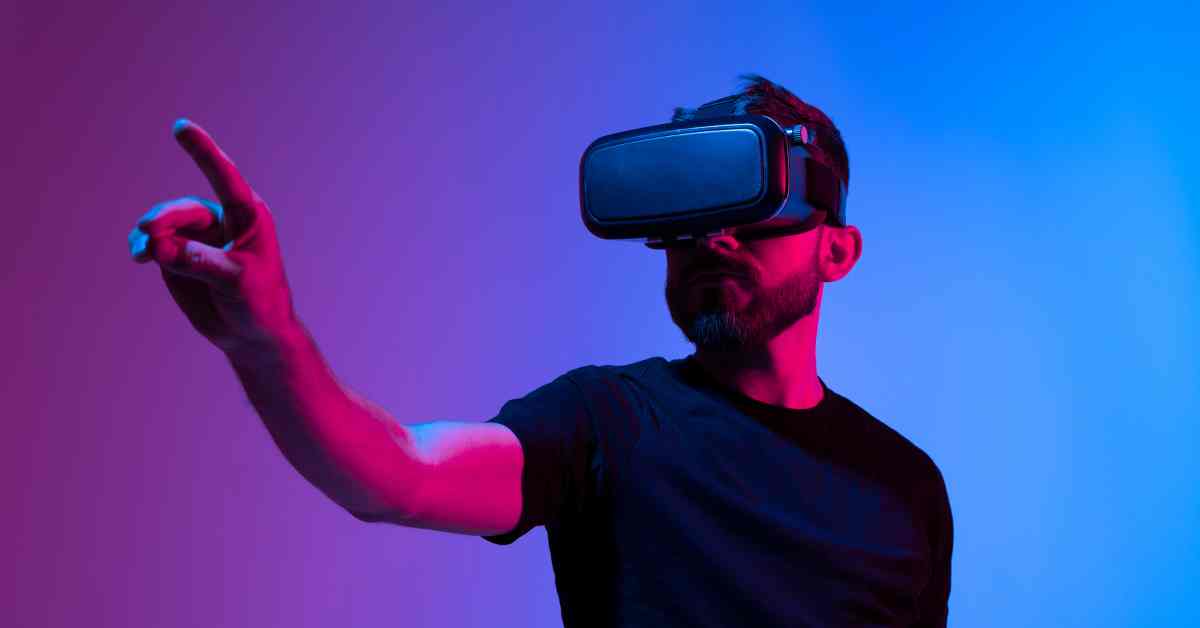The Metaverse is a term that has become increasingly popular in recent years, but what exactly is it? The Metaverse refers to a shared virtual reality where users can connect and interact in real time. In the realm of digital advancements, platforms like the Chainwizard AI Platform are paving the way for seamless online trading experiences, even as we delve deeper into the intricacies of the metaverse.
It is an online space resembling the natural world where users can experience events, share virtually with other users, and consume products and services.
However, the Metaverse is more than just a game or online platform. It is a virtual universe in which new technologies and business opportunities are developed.
With growing interest in the Metaverse from large businesses and consumers worldwide, it’s essential to understand the basics of this increasingly influential virtual space. In this guide, we’ll explore critical aspects of the Metaverse, from the platforms and technologies that make it possible to the emerging economy and future trends.
Metaverse Key Concepts: The Basics
The Metaverse is a term used to describe a virtual space in which users, through their virtual twins, can interface with virtual reality and disconnect from the real world.
It is an online universe where people can create, share, and experience different types of content in a virtual environment. Some fundamental concepts of the Metaverse include virtual and augmented reality, social interaction, and the virtual economy.
Virtual reality is a technology that allows users to immerse themselves in a virtual environment and experience different types of content in an immersive way. Augmented reality, on the other hand, will enable users to overlay virtual elements in the real world through devices such as smartphones and augmented reality glasses.
Social interaction is a fundamental part of the Metaverse. Users can communicate and collaborate in real time, allowing them to co-create and share content. The virtual economy, for its detail, refers to the use of virtual currencies and other types of transactions in the Metaverse.
Entering virtual and augmented reality
Virtual and augmented reality technologies have experienced tremendous growth in recent years. Virtual reality devices, such as VR headsets, have allowed users to immerse themselves in high-quality virtual environments and experience different types of content as if they were right there.
On the other hand, augmented reality has allowed users to superimpose virtual elements in the real world through mobile devices and raised reality glasses. As a result, it has given rise to innovative educational, advertising, and entertainment applications.
The leading players and platforms of the Metaverse
This new technology has a large number of media and essential players. Some of the best-known include Second Life, VRChat, High Fidelity, and Sansar. These platforms offer different experiences and content, from virtual worlds for games to virtual spaces for education and collaboration.
In addition to these platforms, companies like Facebook, Google, and Microsoft are investing in the development of the Metaverse. Facebook, for example, has created its virtual reality platform called Oculus, which allows users to experience different types of content in an immersive virtual environment.
Economy and Opportunities in the Metaverse
The Metaverse also offers a host of economic opportunities. Users can create and sell different types of content, from virtual clothing to music and art. Many jobs are being made around the Metaverse, such as content designers, software developers, and marketers.
On the other hand, some companies are investing in the Metaverse, such as virtual and augmented reality hardware manufacturers, software developers, and content service companies.
The metaverse market is expected to grow significantly in the coming years, which could create a host of economic opportunities for users and businesses.
The Social and Cultural Impact of the Metaverse
The Metaverse also has a vast social and cultural impact. By enabling real-time social interaction, the Metaverse can significantly affect how people engage with one another. Furthermore, it can be a powerful tool for education and collaboration, which could dramatically impact how people learn and work.
On the other hand, the Metaverse also raises some social and cultural concerns. For example, some worry that the Metaverse could be used to spread misinformation and propaganda. In addition, there are also privacy and security concerns in the Metaverse.
Conclusion
The future of the Metaverse is uncertain, but it is expected to continue to grow and evolve in the coming years. The metaverse market is expected to reach $400 billion by 2025, which means there will be plenty of opportunities for users and businesses.
Furthermore, the Metaverse is expected to become an increasingly important tool for education, entertainment, and collaboration. Virtual and augmented reality technologies are expected to improve, allowing users to experience increasingly immersive content.












